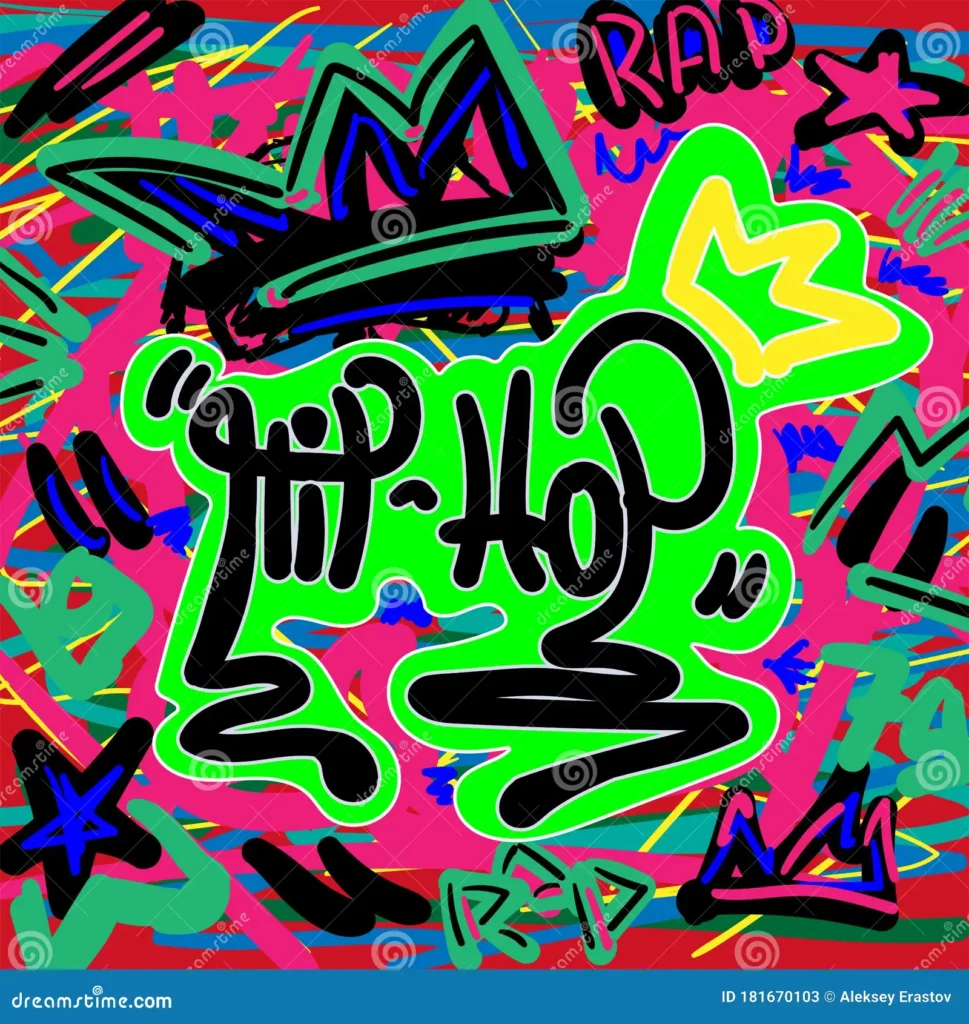History of Hip Hop
Hip hop is a music genre that emerged in the Bronx, New York City, in the 1970s. It was created by African American and Latino youth as a form of expression and cultural resistance in response to social and economic marginalization. Hip hop quickly spread throughout the United States and the world, becoming one of the most popular and influential genres of music. Hip hop music has its roots in African American and Latinx cultures, and was influenced by various musical genres including funk, soul, and jazz. It was initially a form of expression for disenfranchised youth in inner-city neighborhoods, and was often used to comment on social and political issues. The roots of hip hop can also be traced back to the block parties that were held in the Bronx in the 1970s. These parties were organized by DJs who would play records and use their turntables to create new beats and rhythms. MCs, or “masters of ceremonies,” would then rap over the beats, using their rhymes to express themselves and entertain the crowd. The first hip hop record to achieve commercial success was “Rapper’s Delight” by the Sugarhill Gang, which was released in 1979. This was followed by a wave of new hip hop artists and groups, including Grandmaster Flash and the Furious Five, Run-DMC, and Public Enemy. Hip hop culture also includes other elements such as graffiti, breakdancing, and fashion. Graffiti art, which involves spray painting images or words on walls and buildings, was a way for hip hop artists to express themselves and gain recognition in their communities. Breakdancing, also known as breaking, was a dance style that emerged alongside hip hop music and became a popular form of expression and competition. In the 1980s, hip hop music began to gain mainstream popularity, with artists such as Run-DMC and LL Cool J becoming household names. In the following decades, hip hop continued to evolve and expand, with subgenres such as gangsta rap, conscious hip hop, and alternative hip hop emerging.
Impacts of Hip Hop
Hip-hop has become one of the most popular and influential genres of music in the world, with artists like Jay-Z, Kanye West, and Kendrick Lamar selling millions of albums and winning numerous awards. Hip-hop has had a significant impact on fashion, art, and entertainment. Elements of hip-hop culture, such as graffiti art, breakdancing, and streetwear fashion, have become mainstream and have influenced popular culture worldwide. Hip-hop has also been used as a tool for social justice and activism, with many artists using their music to raise awareness about issues such as poverty, police brutality, and racial inequality. Most artists use Hip Hop to promote social change and inspire political action.
Hip-hop has played an essential role in shaping young people’s identities, particularly those from marginalized communities. Hip-hop culture has provided a sense of belonging and empowerment to many young people and has given voice to those who have been historically marginalized.
Conclusion
Over the years, hip hop has continued to evolve and diversify, with new subgenres and styles emerging. Some of the most popular subgenres include gangsta rap, which focuses on themes of violence and street life, and conscious rap, which addresses social and political issues and is a global phenomenon, with artists from all over the world contributing to the genre’s diverse and ever-evolving sound. Hip hop has also influenced other aspects of popular culture, including fashion, dance, and film. Today, hip hop remains an important part of popular culture and a powerful form of expression for millions of people around the world.
Legends of Hip Hop
Grandmaster Flash and the Furious Five – Considered one of the pioneers of hip hop, Grandmaster Flash and his group The Furious Five were instrumental in the development of the genre in the late 1970s and early 1980s.
Run-DMC – Known for their fusion of rock and rap, Run-DMC helped to bring hip hop into the mainstream in the 1980s.
Tupac Shakur – One of the most iconic and influential rappers of all time, Tupac’s music was known for its emotional depth and raw honesty.
The Notorious B.I.G. – Known for his distinctive flow and storytelling ability, Biggie was a key figure in the East Coast vs. West Coast hip hop rivalry of the 1990s.
Jay-Z – A hugely successful rapper and businessman, Jay-Z is known for his innovative wordplay and his ability to combine social commentary with commercial appeal.
Kendrick Lamar – Widely regarded as one of the most talented and socially conscious rappers of his generation, Kendrick Lamar’s music explores themes of race, identity, and inequality in America.
Meaningful Message of Hip Hop
In my opinion Hip hop has always been a genre of music that has provided a platform for marginalized communities to express themselves and tell their stories. At its core, hip hop has a message of empowerment, self-expression, and social justice.
Hip hop often addresses social and political issues such as poverty, racism, police brutality, and inequality. The genre also frequently speaks to issues within the community such as gang violence, drug addiction, and economic struggle. Hip hop artists often use their music as a way to give voice to the voiceless and to raise awareness about issues that are often overlooked by mainstream society.
In addition to social and political messages, hip hop also celebrates individualism and self-expression. Many artists use their music as a way to tell their own personal stories, struggles, and triumphs. This message of self-empowerment has inspired generations of fans to be true to themselves and to pursue their dreams.


